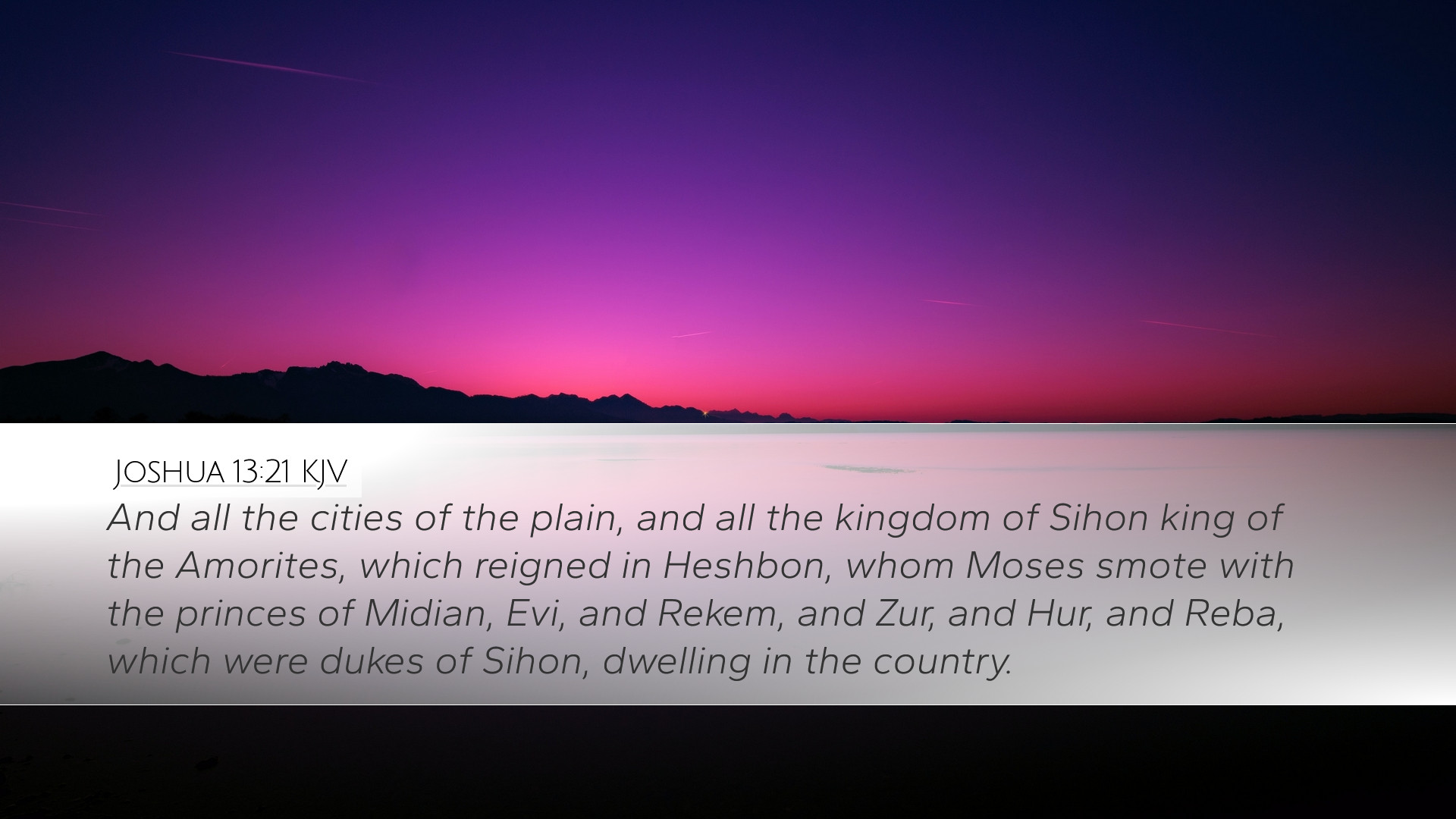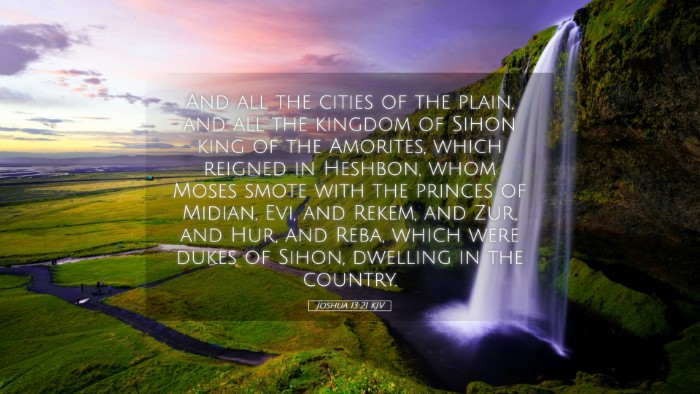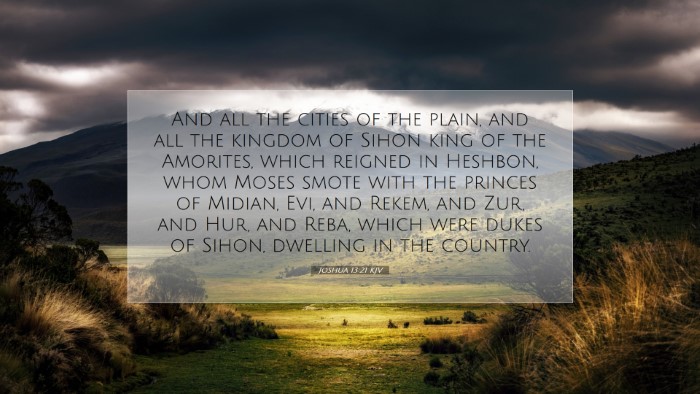Commentary on Joshua 13:21
Joshua 13:21 states: "And all the cities of the plain, and all the kingdom of Sihon, which was king of the Amorites, and the country of Gilead, and the half the land of the Geshurites and Maachathites, and all mount Hermon, and all Bashan which was called the land of giants."
Introduction
This verse captures a significant moment in the context of the Israelites' conquest of Canaan. It lists the territories that were under the rule of Sihon, the king of the Amorites, and the related regions that were destined for the tribes of Israel. The insights provided by historical and theological commentaries shed light on the importance of this passage.
Insights from Matthew Henry
Territorial Significance: Matthew Henry emphasizes the relevance of territories mentioned in Joshua 13:21. The land of Sihon represents a conquest that establishes the authority of Israel over their enemies. This victory is a testament to God's faithfulness in fulfilling His promises to Israel.
The Land of Giants: Henry notes that the mention of Bashan as the "land of giants" points not only to the physical might displayed by its previous inhabitants but also serves as a reminder of God's power to overcome formidable strongholds for His people.
Insights from Albert Barnes
The Role of Gilead: Albert Barnes explores the strategic importance of Gilead. He notes that the region provided not only fertile grounds for agriculture but also geographical advantages for the Israelites. Gilead became a focal point in God's distribution of land among the tribes.
Historical Context: Furthermore, Barnes highlights that these territories were once under the dominion of formidable foes. Sihon’s defeat illustrates God’s sovereignty in elevating Israel's status from slaves in Egypt to landlords of the Promised Land.
Insights from Adam Clarke
The Nature of Warfare: Adam Clarke elaborates on the nature of warfare in ancient times and the significance of Israel's military conquests. Clarke points out that the descriptions in this verse reflect the intense struggle for possession of lands that were not only pivotal geographically but also spiritually, as they represented the fulfillment of divine promises.
Spiritual Implications: He goes on to discuss the spiritual implications of possessing the land. Clarke suggests that the physical possession of these lands is analogous to the Christian’s spiritual battles and victories in claiming their rightful inheritance in Christ.
Theological Reflections
This verse invites profound theological reflections as it portrays God's faithfulness to His covenant people. Scholars often interpret the land divisions in terms of God's providence, where every city and region symbolizes a piece of the divine inheritance prepared for God's people.
Covenantal Promises
The territories highlighted in Joshua 13:21 reflect the broader narrative of the covenant established between God and Abraham and fulfilled through Moses and Joshua. Each mention of a city or region reminds the reader of God's unwavering commitment to fulfill His promises despite the challenges presented by the enemies of Israel.
God's Sovereignty
The sovereignty of God is illustrated through His control over the outcome of battles. The defeat of Sihon and the capture of his kingdom exemplify how God not only leads His people into battle but also grants them victory over seemingly insurmountable odds.
Application for Believers
This passage serves as an encouragement for modern-day believers to trust in God's promises amidst life's battles. Just as Israel faced giants, Christians today are also confronted by challenges that may seem overwhelming. The assurance found in this verse is that, with faith in God, victory is assured.
Conclusion
Joshua 13:21 encapsulates significant historical, geographical, and spiritual truths for both ancient and modern audiences. Through the insights of Matthew Henry, Albert Barnes, and Adam Clarke, a rich tapestry of understanding emerges, inviting pastors, students, theologians, and scholars to meditate on God's promises, His sovereign control over history, and the implications for living a life of faith in the present.


